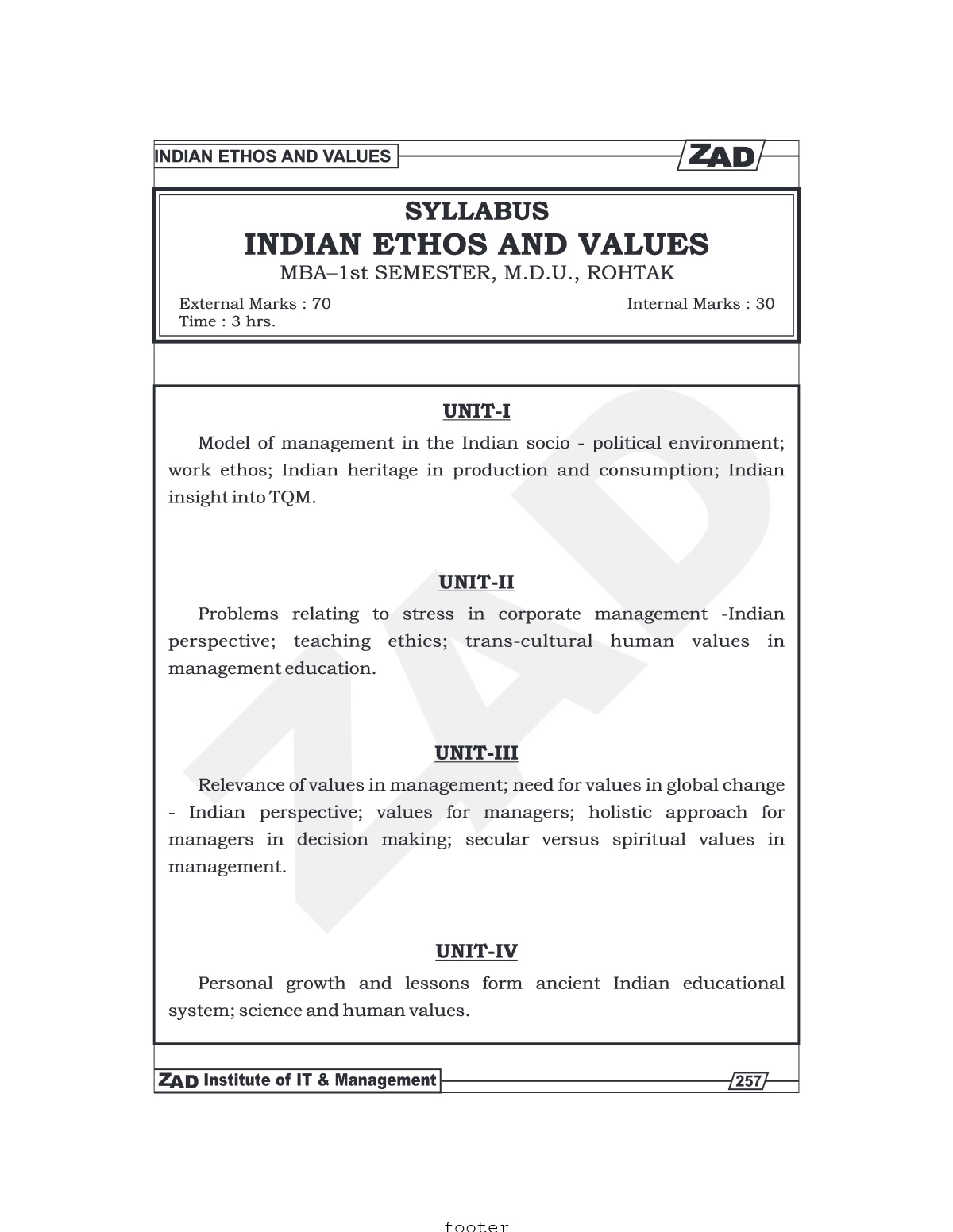
Indian Ethos and Values Management Book
Indian ethos and values in management encompass principles and philosophies derived from India’s cultural, spiritual, and philosophical heritage. These values influence management practices, organizational behavior, and leadership styles in various ways.
Indian Ethos and Values in Management Keys
- Spirituality and Holistic Approach:
- Concept: Indian management emphasizes a holistic view of individuals and organizations, integrating spiritual well-being with professional growth.
- Impact: This approach promotes a balanced work-life environment, employee well-being, and ethical decision-making rooted in higher values.
- Dharma (Duty and Ethics):
- Concept: Dharma refers to moral duty and ethical responsibility in all actions.
- Impact: In management, it translates to ethical governance, fairness, transparency, and a focus on societal welfare alongside organizational goals. Leaders are expected to uphold integrity and righteousness.
- Guru-Shishya Parampara (Teacher-Disciple Tradition):
- Concept: Emphasizes mentorship, learning from elders, and respecting hierarchical relationships.
- Impact: Promotes a culture of mentorship, knowledge sharing, and lifelong learning within organizations. Leaders are seen as mentors guiding their teams towards excellence.
- Collectivism and Family Orientation:
- Concept: Values community and family bonds, promoting collective decision-making and harmonious interpersonal relationships.
- Impact: Organizations foster a sense of belonging and mutual support among employees, encouraging teamwork, collaboration, and consensus-driven decision-making.
- Respect for Hierarchy and Authority:
- Concept: Values respect for seniority and authority figures, rooted in traditions like “Guru-Shishya” relationships.
- Impact: Hierarchical structures are respected, and decision-making involves consulting with seniors. This can lead to slower decision-making processes but fosters stability and order.
- Ahimsa (Non-violence) and Conflict Resolution:
- Concept: Advocates peaceful conflict resolution and avoiding harm to others.
- Impact: Encourages managers to adopt non-confrontational approaches to resolving conflicts, fostering a harmonious work environment and nurturing long-term relationships.
- Karma (Action and Consequences):
- Concept: Emphasizes the law of cause and effect, where actions have consequences.
- Impact: Encourages ethical behavior, accountability, and responsibility among managers and employees. Decision-making considers long-term implications and ethical considerations.
- Seva (Service) Orientation:
- Concept: Emphasizes serving others and contributing to societal welfare.
- Impact: Organizations may engage in corporate social responsibility (CSR) activities, giving back to communities, and integrating social welfare into business practices.